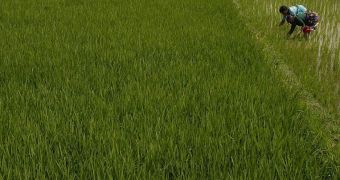According to a new report, it would appear that the African continent is capable of accommodating large swaths of land containing bioenergy production-related plans. This can be achieved without diminishing, or otherwise affecting, the areas already planted with edible crops, or natural reserves. The conclusions belong to a document elaborated by the Forum for Agricultural Research in Africa (FARA), the Imperial College London, in the United Kingdom. and CAMCO International, ScienceDaily reports.
The western, eastern and southern parts of the African continent are the most suitable places for growing crops destined to be exploited for bioenergy production. “If approached with the proper policies and processes and with the inclusion of all the various stakeholders, bioenergy is not only compatible with food production; it can also greatly benefit agriculture in Africa. Bioenergy production can bring investments in land, infrastructure, and human resources that could help unlock Africa's latent potential and positively increase food production,” said Dr. Rocio Diaz-Chavez.
The expert is a ICL research fellow, and also the lead author of the newly-released document. The study, entitled Mapping Food and Bioenergy in Africa, was presented in the African nation of Burkina Faso, during the 5th African Agriculture Science Week. One of the conclusions that stood out was that the production of plants such as sugar cane, sorghum, and jatropha – all essential for producing bioenergy – is possible and sustainable on huge stretches of land, without overlapping on lands used for agriculture. Case studies on the nations Senegal, Mali, Tanzania, Kenya, Zambia, and Mozambique were also presented in the report.
“There have been individual instances where bioenergy production has produced negative impacts, but that does not mean it is not possible to develop this sector in a sustainable manner,” the lead study author says. The issues facing such endeavors “are the same challenges you see for any crops, which is if you don't have adequate resources, you cannot boost production. […] it is possible to triple yields by using improved management practices, potentially freeing up more land for bioenergy production,” she argued in front of conference participants.
“Energy is the key to modernizing agriculture in Africa. We need to make our politicians understand that we will never have an agriculture revolution in Africa without having access to modern energy services,” concluded expert Dr. Ibrahim Togola. He is a professor at the Rural Polytechnical Institute in Mali, and also the leader of the county's agriculture industry development group.

 14 DAY TRIAL //
14 DAY TRIAL //